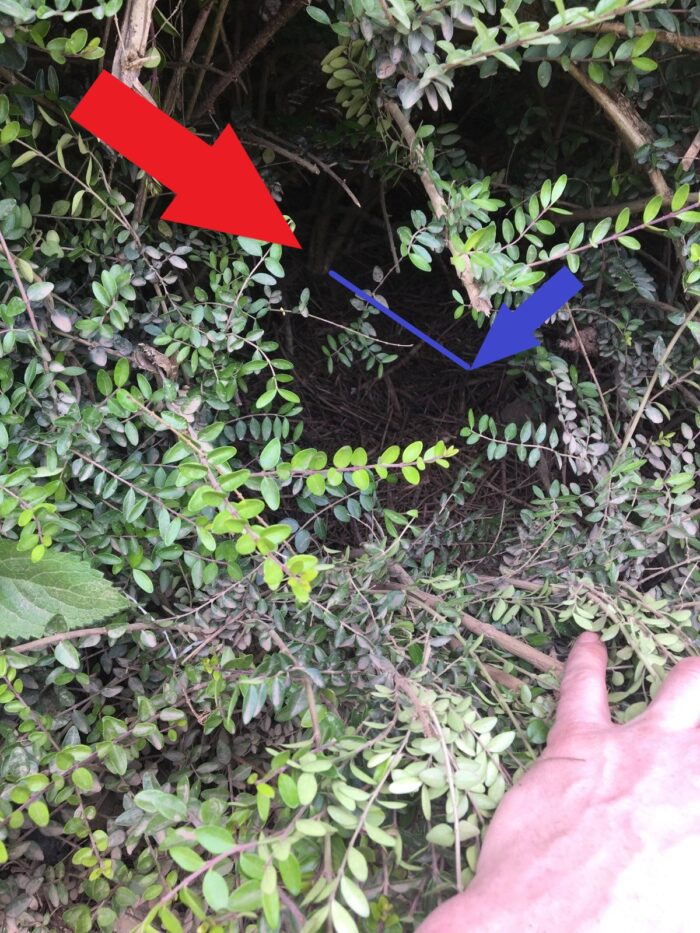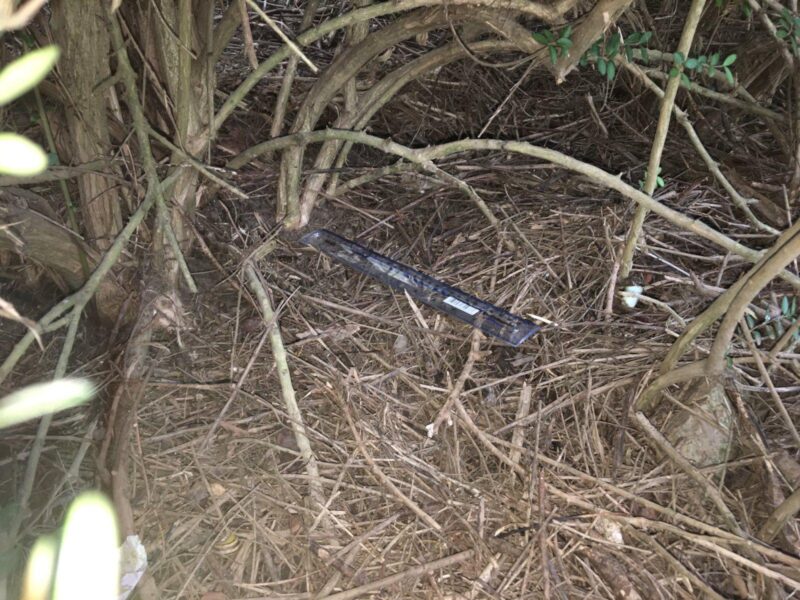This Lonicera nitida hedge in a local Somerset car park is a prime example of how good this hedge plant looks despite neglect!
A good hedge is thick and bushy down to the base, which is easy to maintain in most cases by trimming at least once or twice a year.
Years of neglect tend to produce hedges with sparse areas at the base, which eventually become gaps big enough to ride a boar through.
This is not a problem for Lonicera nitida, Shrub or Box Honeysuckle (i.e. the hedge kind, not the climbing kind), which is practically immune to pollution and being sprayed with mud, and does this nifty thing called layering, meaning that its branches set root where they touch the ground. Over time, this causes the base of the hedge to slowly “walk” forward, preventing it from becoming sparse, even with no human help.
This hedge is trimmed, cheap and cheerfully, only once a year:

It is growing happily on pretty bad soil right next to a concrete parking area: deeply compacted clay that bakes to a brick in summer and is underwater for days at a time in winter. It is never mulched or fed, and the worst weeds are ripped out every few years at best.
The base is regularly sprayed with car park puddle mud, which is a rich source of the three essential plant nutrients: engine oil, detergents, and bits of plastic.
Thanks to this diet, it is leafy right down to the ground:
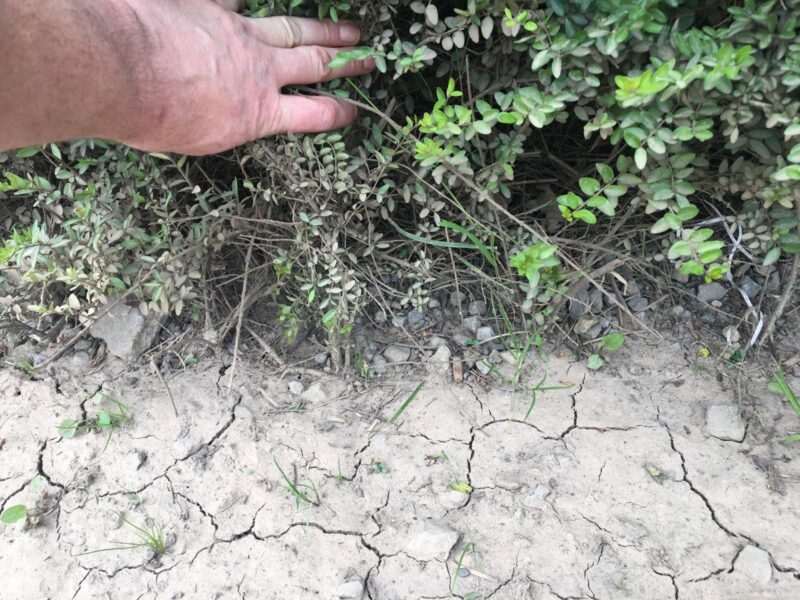
If we poke our heads inside the hedge, we can see how the branches’ layering property achieves this (the base of the hedge can’t be seen, but it is around the right-hand edge of the below pic):
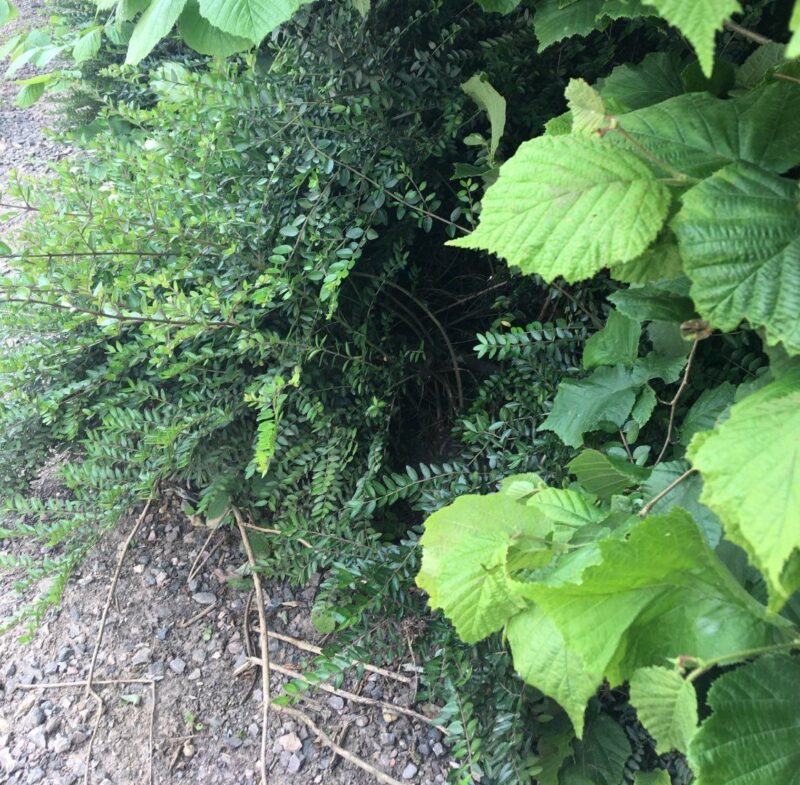
The old, less leafy stems coming from the right edge of the picture, going down to the ground and rooting, are from the original base of the hedge.
The new, leafy stems emerging from the ground, growing upwards and to the left, are coming from the roots made by the old stems.
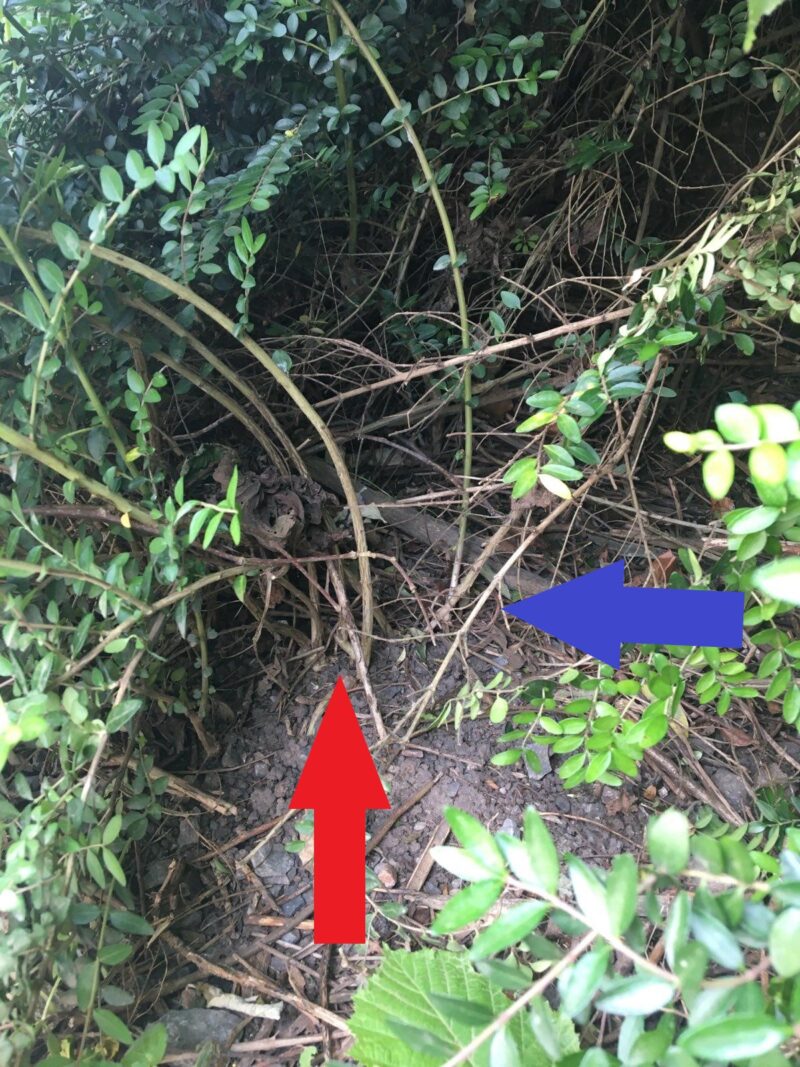
With the help of a plastic ruler, I can show you roughly how far these layering branches can walk:
